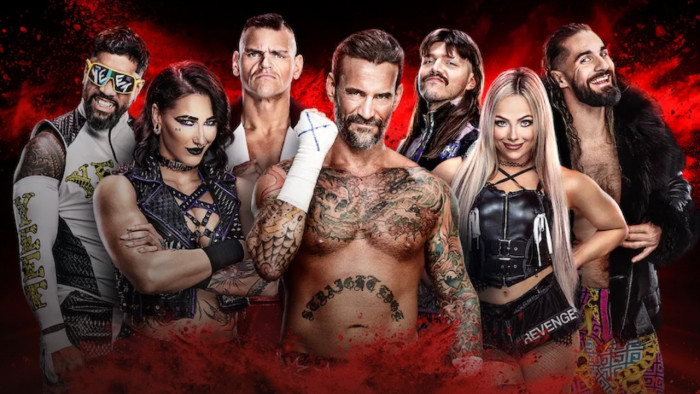What could happen if England boycott the World Cup?
Could a boycott of the Russia tournament happen, and what could it mean?


If you’re English and in the public eye, it is quickly becoming a very awkward time to be preparing for a major sporting event in Russia.
The country is suspected of having potential ties to the poisoning of ex-spy Sergey Skripal and his daughter Yulia, prompting foreign secretary Boris Johnson to threaten to withdraw British dignitaries and royals from World Cup duties.
But could it go even further? Could we reach a stage where Russian involvement is proven and England respond by withdrawing their players from the tournament.
England are currently seventh-favourites to win the competition, but manager Gareth Southgate has already said he would not stand in the way of any players withdrawing from the competition if they have reservations about travelling to Russia.
Could the entire team withdraw, though, and if so, what would that mean for both England and the tournament at large?

There is a single precedent of a qualified team withdrawing from the World Cup, and coincidentally there is an English connection there too.
All the way back in 1938, Austria beat Latvia in a play-off to reach the finals. However, as Brian Glanville explains in his book The Story of the World Cup, “The Anschluss had swallowed up Austria, whose best players had been snatched by the German national team.”
Austria’s place was offered to England, at the time not members of FIFA, though when they turned down the offer the decision was made to give Sweden – Austria’s provisional first-round opponents – a bye to round two.
There’s no direct comparison this time around, as the World Cup has long since moved from straight knockouts to an opening group stage. However, if Austria’s withdrawal was taken as a precedent it could mean England’s group going down to three teams instead of four, with two of Belgium, Panama and Tunisia progressing to the last 16.
More recently, when Yugoslavia were banned from the 1992 European Championships, their place was offered to Denmark – the side who had finished directly below them in qualifying for the tournament. The Danish side took Yugoslavia’s place in Group A alongside Sweden, France and England, and went on to sensationally win the entire tournament.
However, it is worth noting that this was a UEFA tournament rather than a FIFA one, so the same rules might not apply. If they did, though, then Slovakia – runners-up in England’s qualifying group (and, conveniently, the only second-placed side not to make it into the play-off round) would join Group G.
Furthermore, just as the UEFA precedent is not analogous, those familiar with the political climate do not consider the current situation comparable to the mass Olympic withdrawals of the 1980s, during which 66 countries boycotted the 1980 Moscow games and 14 nations returned the favour in Los Angeles in 1984.
“I am not convinced that current threats of a World Cup boycott are comparable to the sporting boycotts in the 1980s,” explains Dr Rasmus Nilsson, a teaching fellow in Russian Foreign and Security Policy at University College London.
“Apart from the fact that a meaningful boycott remains unlikely to happen under current circumstances, in the 1980s the sporting boycotts took place in the context of an ideologically fuelled Cold War. With the international prestige of governing systems being at stake, any symbolic victory or disagreement - such as involving sports - was important.
“Today, without a similarly pervasive ideological conflict, rivalries over sports are less likely to significantly impact relations between Russia and the West.
In the meantime, a FIFA spokesperson has told ShortList the body has a policy of not speculating on any potential scenarios and their possible outcomes, and referred to its official regulations, which state: “If any association withdraws or is excluded from the competition, the FIFA Organising Committee shall decide on the matter at its sole discretion and take whatever action is deemed necessary. The FIFA Organising Committee may in particular decide to replace the association in question with another association.”
Put simply, that means they can call up a replacement nation, but they’ve left things open-ended.

Late replacements Denmark won Euro ‘92
What might be more significant, however, is the potential repercussions beyond the 2018 tournament.
According to FIFA’s World Cup regulations: “Any association that withdraws no later than 30 days before the start of the final competition is liable to a fine of at least CHF 250,000 [roughly £188,400]. Any association that withdraws less than 30 days before the start of the final competition, or during the final competition itself, shall be fined at least CHF 500,000 [roughly £376,800].”
At the time of writing, the tournament is 90 days away, meaning the lesser of the two fines would apply, but the more significant potential punishment is included lower down in the regulations.
FIFA is free to impose additional punishments, including expulsion from future tournaments, so if England were to pull out then there’s a chance they’d be forbidden from even attempting to qualify for the 2022 World Cup in Qatar.
However, the precedents here are themselves arguably inconsistent, as Simon Chadwick, a professor of sports enterprise at the University of Salford, tells ShortList.
“If you look at what China have been doing over the last few years there are potentially grounds for FIFA to suspend them [for government interference in the country’s football association], but that’s not going to happen and no one has, to my knowledge, been openly or repeatedly calling for it to happen,” Professor Chadwick explains.
“Compare that to Kuwait, who have been doing similar and have been suspended. You then look at England and ask would FIFA go down the Kuwait route or the China route.”

FIFA chief Gianni Infantino has largely avoided controversy since replacing Sepp Blatter
If the above does happen, England would not be the first team prevented from taking part in a qualifying campaign for a World Cup.
FIFA has form for excluding nations on the grounds of government interference, with Indonesia the most recent to suffer this particular fate. The Asian nation, who have only once qualified for a World Cup, was banned from the AFC qualifying campaign due to government interference in the domestic football league. Zimbabwe were also expelled from qualifying ahead of this tournament, over a failure to pay a severance fee to a former coach.
The aforementioned Kuwaiti suspension, meanwhile, which has since been lifted, relates to [in FIFA’s words] “The KFA and its members [being] able to carry out their activities and obligations independently.”
While details of the 2022 qualifying campaign are yet to be formalised, there is precedent for previously-suspended nations to return for the following campaign if the reason for their suspension no longer applies. Ethiopia were excluded from the 2010 qualification campaign due to a FIFA suspension, but returned to take part in qualifying for the 2014 after that suspension was lifted.
Essentially, however, England’s fate would be in FIFA’s hands if they opted to withdraw from the 2018 tournament.
“The reality of the situation is unless there’s clear and tangible evidence that the government has intervened, the onus is on FIFA to prove it has taken place,” explains Professor Chadwick.
“It’s worth remembering among all this that FIFA is a relatively small organisation, and the bulk of their staff are currently working on the world cup itself.
“There will be a Plan B – it would be unprofessional for there not to be one in place. But because of the way [FIFA] are governed, we will never really know until they tell us.
“You’d expect, locked away in a safe in Switzerland, there will be a Plan B but the question is are they already talking about it? If they haven’t then what will it take?”

The bigger concern may relate to broader relations with Russia, of course.
“Those who continue to pressure us, and are looking for new pretexts (after the doping allegations and other things) for complicating the World Cup, they have a motive. Everyone knows it,” Russian Foreign Minister Sergey Lavrov said this week.
However, Dr Peter Duncan, a Russian foreign policy expert and senior lecturer at University College London, doesn’t anticipate any boycott - political or otherwise - having too much of an impact on Russia itself.
“I don’t think [England not going] would delegitimise this tournament,” he tells ShortList, noting that more groundbreaking boycotts - especially that of the 1980 Moscow Olympics - are more significant due to the sheer volume of withdrawals.
“My impression is that if the dignitaries and royals boycott the tournament it’s going to have no effect, and if just the England football team boycotts it’s going to have no effect, but if England and a lot of the other big European countries do so…”
Dr Nilsson adds that “It is likely that the Russian regime would present [any England] boycott as yet another example of how Western countries are allegedly willing to politicise events that should foster international understanding (not that such politicisation cannot happen through Russian initiatives, of course, although the Russian leadership would not admit this).”

Sergey Lavrov has spoken of attempts to ‘complicate’ the World Cup
Still, as Professor Chadwick notes, there’s one area where Russian influence in football exists and English influence does not, namely through the sponsorship deals involving Gazprom, a private company but one whose majority share belongs to the Russian government.
As well as being an official partner of the World Cup, Gazprom sponsors multiple clubs and competitions under the auspices of European governing body UEFA. While other companies with ties to sovereign states tick one or more of these boxes, Qatar Airways chief among them, few if any have the reach of Gazprom.
“Sport is important to Russia and this is why they get Gazprom [to take such a big role],” Dr Duncan says, adding that “If FIFA or UEFA issued a statement [condemning Russia] then Gazprom might think about it but I can’t see something like that happening.”
“My estimate is that Gazprom will continue to sponsor sports events as long as this makes branding and economic sense,” Dr Nilsson adds.
“Following from my point above, if Russia could present a coherent (if perhaps one-sided) argument that Britain was seeking to politicise an event, which should remain a-political, then Gazprom would not need to threaten the withdrawal of any football sponsorships. Instead, the Russian company could (continue to) present a narrative in which it (and Russia) was fostering international understanding, unlike the belligerent Brits.”
While UEFA might not be directly impacted by any withdrawals from the World Cup, tensions between the UK and Russia are certainly likely to be in the back of the governing body’s mind as it prepares for the 2020 European Championships, if only from a PR perspective.
“In some ways it’s an even more sensitive issue for UEFA, as Russia is a UEFA member and it’s a big problem if they’re found to be acting in violation of UK sovereignty,” Professor Chadwick says.
“And of course there are some very significant games due to take place in England in 2020, notably the final.”
(Images: Getty)
Latest
Related Reviews and Shortlists









